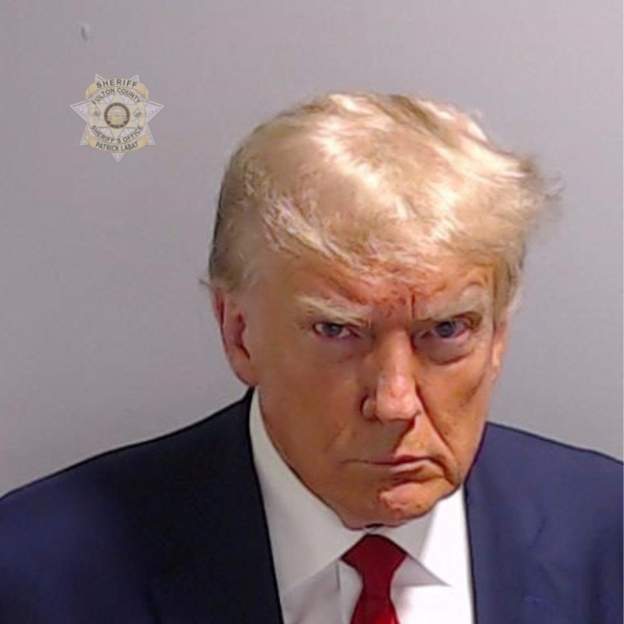Top Stories
Breaking: Trump ordered to pay $355 million, barred from running New York businesses …

A New York judge orders former President Donald Trump to pay $355 million and cease running any businesses in the state for three years as punishment for fraudulently inflating his net worth to obtain favorable treatment from banks and other lenders. Additional penalties against Trump’s two adult sons and an associate brought the total in the civil case to $364 million. In Georgia, a divorce lawyer for lead prosecutor Nathan Wade is among several witnesses to testify at a hearing seeking to disqualify Fulton County District Attorney Fani Willis from the election interference case brought against Trump and 18 others. Here are the latest legal developments involving the Republican frontrunner seeking to be reelected to the White House in 2024.
New York financial fraud
Judge orders Trump to pay $355 million dollars and cease running businesses in the state for three years as punishment for fraudulently inflating his net worth
Key players: New York Attorney General Letitia James, Judge Arthur Engoron
- The crushing penalty — which may top $400 million once interest is factored in — could cost Trump all of his available cash. But because most of his wealth is tied up in real estate, it would not leave him bankrupt.
- Trump has 30 days to either come up with the money or secure a bond. He is expected to appeal. In addition, Trump will likely ask an appeals court to halt the ban on him serving in a lead role at any New York company, including his own, while it considers the case.
- The court also banned Trump’s two adult sons from serving in a similar capacity for two years and fined them $4 million each. Trump’s former chief financial officer, Allen Weisselberg, was ordered to pay $1 million. It is unclear who can run the family business in the near future.
- James had sought repayment of $370 million worth of “ill-gotten gains” from Trump and his co-defendants in the financial fraud civil trial — money, James wrote in a filing, that the “defendants reaped … through their unlawful conduct.”
- State lawyers alleged that Trump exaggerated his wealth by as much as $3.6 billion in a single year.
- Engoron had already ruled that Trump and the other defendants were liable for years of fraudulent practices, including inflated asset valuation, that helped them obtain favorable loan and insurance rates. The point of the trial was in part to determine penalties for that fraud.
- Though Trump’s bankers testified that they were happy to have him as a client, Trump’s conduct nonetheless “distort[ed] the market,” a lawyer from James’s office said during closing arguments. “It prices out honest borrowers and can lead to more catastrophic results. … That’s why it’s important for the court to take the steps to protect the marketplace to prevent this from happening again.”
- Because this was a civil trial, Trump was not facing prison time.
Why it matters: Engoron’s harsh punishment will hit Trump where it hurts — in the pocketbook and in public perceptions of his business acumen. But a drawn-out appeals process could dull any immediate effect.
Georgia election interference
Wade’s divorce lawyer refuses to divulge details of Wade’s relationship with Willis, citing attorney-client privilege
Key players: Judge Scott McAfee, Fulton County District Attorney Fani Willis, lead prosecutor Nathan Wade, Trump co-defendant Michael Roman’s lawyer Ashleigh Merchant, Trump lawyer Steve Sadow, Wade divorce lawyer Terrence Bradley
- A day after Willis took the stand and vehemently denied that her romantic relationship with Wade constituted a conflict of interest that should disqualify her from overseeing the election interference case against Trump and his co-defendants, several other witnesses appeared in court to answer questions about the relationship.
- Lawyers for Trump and his co-defendants contend that Willis and Wade’s relationship started before Willis hired Wade as her lead prosecutor — and that by taking trips together and letting Wade foot the bill, Willis profited financially from the arrangement.
- Willis and Wade claim their intimate relationship did not begin until after Willis hired Wade and that Willis paid Wade back in cash.
- On Friday, Terrence Bradley, a lawyer who once worked in Wade’s law firm and served as his divorce lawyer, was called to testify by lawyers for Trump and his co-defendants about the timing of Willis and Wade’s relationship.
- Despite elaborate efforts by Merchant and Sadow to force Bradley to divulge his “personal knowledge” of the affair, Bradley claimed attorney-client privilege and said little.
- Merchant previously alleged that Bradley had learned about Wade and Willis’s relationship “directly from Wade when Wade was not seeking legal advice from Bradley” and that the information was obtained “in a personal capacity as Wade’s friend prior to Wade’s decision to file for divorce.”
- Willis’s father, John Floyd, testified that he only learned about Willis’s relationship with Wade “when other folks found out” and that his daughter has been subject to abuse — people “cursing and yelling” the “b-word” and the “n-word” outside her house — because she is prosecuting Trump, cutting against the argument that Willis is pursuing the case to enrich herself.
- Former one-term Gov. Roy Barnes, a moderate Democrat and a prominent Georgia lawyer, testified that he turned down the job that eventually went to Wade because of the low pay and the explosive politics. “I have mouths to feed at a law office,” Barnes said. And “I wasn’t going to live with bodyguards for the rest of my life.”
- Earlier this week, McAfee said the allegations against Willis could lead to her removal from the case. He is not expected to rule immediately.
- Why it matters: If McAfee disqualifies Willis or Wade, it could delay or even derail the case against Trump and his co-defendants.
________________________
Thursday, February 15
________________________
A combative Fulton County District Attorney Fani Willis takes the witness stand in a Georgia courtroom at a hearing seeking to disqualify her from the election interference case brought against former President Trump and 18 others. In New York, Judge Juan Merchan denies former President Donald Trump’s request to dismiss charges in a New York criminal case alleging he paid off two women to keep them from disclosing alleged extramarital affairs in the runup to the 2016 presidential election. The judge says the trial will begin on March 25, making it the first time in U.S. history that a former president will face criminal charges in a court of law. Here are the latest developments in the legal cases facing the man who is hoping for a return to the White House in 2024.
Georgia election interference
Willis offers defiant testimony at hearing seeking her removal from Trump case
Key players: Judge Scott McAfee, Fulton County District Attorney Fani Willis, lead prosecutor Nathan Wade, Trump co-defendant Michael Roman’s lawyer Ashleigh Merchant, Trump lawyer Steve Sadow, co-defendant Jeffrey Clark’s lawyer Harry MacDougald, co-defendant David Shafer’s lawyer Craig Gillen, former Willis friend Robin Bryant-Yeartie
- Willis took the witness stand Thursday and vehemently denied that her romantic relationship with Wade constituted a conflict of interest that should disqualify her from overseeing the election interference case against Trump and his co-defendants, ABC News reported.
- Willis sparred with lawyers for co-defendants Roman, Trump, Shafer and Clark, claiming that she did not accept gifts from Wade in the form of travel during their romantic relationship.
- “I don’t need anything from a man,” Willis said at one point, adding, “A man is not a plan. A man is a companion.”
- Defense lawyers relentlessly questioned Willis about whether she told any of her professional colleagues that she was romantically involved with Wade and whether they co-habitated.
- “It is a lie!” Willis said about Merchant’s filing claiming that Wade had lived with the Fulton County DA.
- “It’s like a woman doesn’t have the right to keep her private life private,” she responded at another point.
- Willis contended that her physical relationship with Wade began after she hired him in November 2021 to lead the investigation of Trump and his co-defendants and ended before she indicted Trump in August 2023 on election interference and state RICO violations.
- “I’m not on trial, no matter how hard you try to put me on trial,” she shot back in an exchange with Merchant.
- After a heated back-and-forth about whether Wade had visited Willis at her home in South Fulton in 2019 and 2020, the judge cautioned Willis about keeping answers limited to addressing the specific questions.
- Bryant-Yeartie testified Thursday that the romantic relationship between Willis and Wade, who Willis hired as the lead prosecutor in the election interference case against Trump and 18 others, began in 2019, Business Insider reported.
- Bryant-Yeartie said she witnessed “hugging, kissing, just affection” between the couple.
- That contradicts claims made to McAfee that the relationship began in 2022, after Willis had hired her.
- Merchant alleges the relationship represents a conflict of interest because the two took leisure trips together and that both Willis and Wade should be disqualified from the case.
- Wade testified Thursday that he and Willis traveled to Aruba together and that he paid for the trip using his business credit card, but that Willis reimbursed him in cash.
- Bryant-Yeartie testified that she worked for Willis, but the two had a falling out, leading her to resign in 2022.
- Prior to Thursday’s hearing, McAfee said the allegations against Willis could lead to her removal from the case.
Why it matters: If McAfee disqualifies Willis or Wade, it could prove a fatal blow to the case brought against Trump and his co-defendants.
New York hush money
Judge rejects Trump’s motion to dismiss hush money case, sets March 25 start date for trial
Key players: Justice Juan Merchan, Trump lawyer Todd Blanche, adult film star Stormy Daniels, former Playboy model Karen McDougal, Manhattan District Attorney Alvin Bragg
Merchan denied Trump’s motion to dismiss the charges in the hush money case brought by Bragg and said the trial would begin on March 25, making Trump the first former president scheduled to face criminal charges in a court of law, the Associated Press reported.
- The judge noted that Trump’s federal trial on election interference had been postponed, clearing space in the calendar for the hush money case to proceed. Merchan had previously denied a Trump motion seeking to delay the start of the hush money trial that cited the start of the election interference case.
- “I’m glad I took that position because here we are — the D.C. case did not go forward,” he said Thursday.
- In response to Merchan’s decision, Blanche said Trump’s lawyers “strenuously object to what is happening in this courtroom,” adding, “The fact that … President Trump is now going to spend the next two months working on this trial instead of out on the campaign trail running for president is something that should not happen in this country.”
- Trump is accused of paying off both Daniels and McDougal to buy their silence regarding alleged sexual affairs with the billionaire ahead of the 2016 presidential election.
- Merchan said the trial is expected to take six weeks, meaning that a verdict could come as early as the beginning of May.
Why it matters: Numerous polls have shown that if Trump was convicted by a jury of a crime, his support from voters would diminish.


 Top Stories20 hours ago
Top Stories20 hours agoBritish High Commissioner To Nigeria Visits FIRS Chairman In Abuja(Photo)

 Entertainment20 hours ago
Entertainment20 hours agoNollywood: Angela Okorie accuses Mercy Johnson of being evil…promises to reveal more

 Sports6 hours ago
Sports6 hours agoDaniel Anjorin’s GoFundMe campaign soars past the £100,000

 Sports23 hours ago
Sports23 hours agoBayern Munich’s star midfielder, Jamal Musiala has revealed that he’s Nigerian

 Top Stories8 hours ago
Top Stories8 hours agoWhy Biden decided to speak out about the campus protests after days of silence

 Top Stories20 hours ago
Top Stories20 hours agoBreaking: MTN Announces Plans To Increase Call Tariff

 News7 hours ago
News7 hours agoBlack Market Dollar (USD) To Naira (NGN) Exchange Rate Today 4th May 2024

 Top Stories5 hours ago
Top Stories5 hours agoI want to start fellowship group – Toke Makinwa








